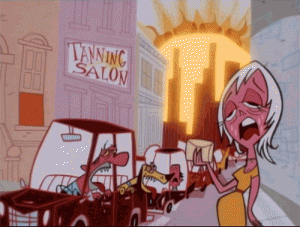“In Wonderland everyone cheats and love is Wonderland isn’t it?”
Love embarks new sensations into the inner soul. For the narrator, love is a life-shattering complicated lifestyle that has created a place called Wonderland in order to further construct the visualization of an adulterer. The language portrays a person who compares themselves with a population who are criticized for making love in the dark, in an unvisualized environment. An environment where no one has to know, no one can’t know.
Does the narrator have guilt, shame? Possibly, but the way they compare themselves with “others” only further emphasizes their shameless ways. Another possible way to interpret the narrators view is for us as readers to perceive the narrator into a double individual, who believes love can be found in any type of circumstances, in a wonderland where we as readers know that it doesn’t exist. Of course Wonderland is an idea, an imagination, an inexistent place. What I really think this passage is about, the narrators imaginable place where only they know the content, the circumstance, the troubles, and the heartbreaks. The narrator is in control of his own imagination, his wonderland. Unfortunately, they have no control of the real world, a world where they will be criticized for their actions.
Work Cited:
Winterson, Jeanette. Written on the Body. 2001. New York, NY: Vintage.

